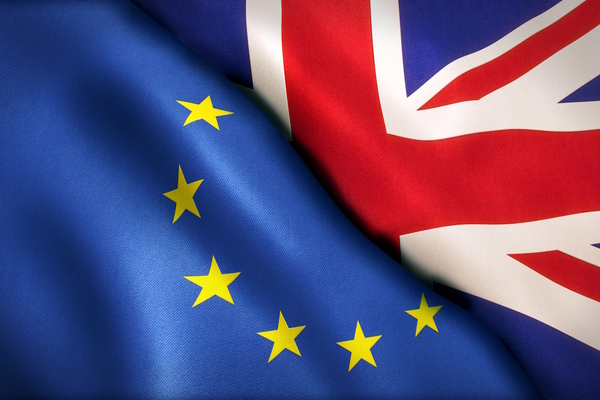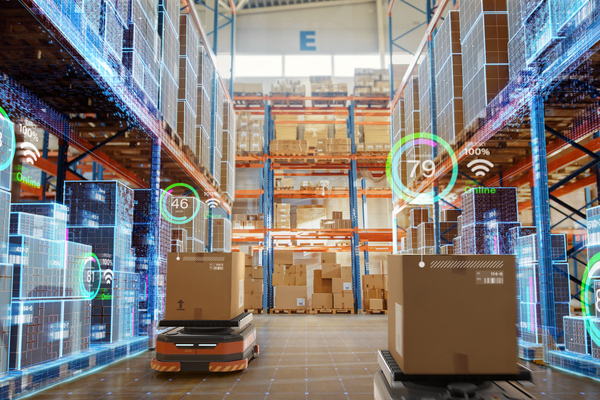Sustainability and data-driven decision making

Operation research specialist Ruediger Hagedorn explains how and why data-driven decisions form the backbone of sustainable business practices
Leveraging data reliably and efficiently is more important than ever. From enhanced consumer engagement to complying with new regulations, businesses need data to make informed decisions and drive progress toward a more sustainable future. This is essential for responsible practices within the value chain, which enables businesses to create a more resilient future for the planet and their operations.
However, data’s significance in sustainability goes far beyond mere end-of-year sustainability reports; it’s about transforming how businesses operate, collaborate, and create value.
Data’s power in supply chain sustainability
Businesses can use data to gain a comprehensive understanding of their environmental impact throughout the value chain, from raw material extraction to consumer use and disposal. This includes tracking metrics such as:
- Greenhouse gas emissions: Monitoring emissions at every stage, including Scope 3 emissions from upstream and downstream activities.
- Waste generation and management: Analysing waste streams, identifying opportunities for reduction, and evaluating the effectiveness of recycling and circular economy initiatives.
- Water consumption and quality: Measuring water usage across operations and supply chains, assessing water risks, and implementing water-saving technologies.
- Sustainable sourcing: Evaluating the environmental performance of suppliers based on deforestation risk, biodiversity impact, and adherence to ethical sourcing principles.
Analysing this data allows companies to:
- Evaluate the sustainability practices of suppliers: By identifying high-risk suppliers, companies can collaborate with them to improve their practices or choose to work with more sustainable alternatives. For example, a company might choose to track and analyse a supplier’s energy use, waste management practices, and labour conditions.
- Optimise logistics: By identifying the most efficient routes, transportation modes, and warehousing strategies, companies can significantly optimize their logistics. This not only cuts costs but also reduces emissions, contributing to overall sustainability efforts. For instance, companies can use predictive analytics to consolidate shipments, reduce fuel consumption, and minimize empty miles.
These are just a few examples of how data can be leveraged to enhance supply chain sustainability. The key is to adopt a holistic, data-driven approach that integrates sustainability considerations into all business decisions.
Bridging data gaps through collaboration
While the benefits of data-driven decisions are undeniable, businesses often face challenges in gathering, analysing, and acting upon data effectively.
Too often, the chiefs of sustainability, supply chain and innovation work in silos. PwC found that many businesses are treating the EU’s Corporate Sustainability Reporting Directive as a siloed function for the sustainability team. Around 60% of businesses have not involved their technology function and teams in assisting with data collection and reporting.
This means that each department may not fully understand the progress and challenges of the other, potentially leading to bottlenecks in gathering or analysing data and poor roll-out of technologies across the company. Sustainability and supply chain directors should work more closely with their innovation counterparts so they can explore technologies and have sustainability as a shared strategic concern.
Research from Accenture showed that companies with the most mature supply chains are 23% more profitable than their peers. These leaders are six times as likely to use AI and generative AI widely across their supply chains, allowing them to generate additional value that moves beyond traditional deliverables like smooth business operations to driving sustainability and resiliency.
Accelerating collaboration
Sustainability is a collective effort that should happen within the company and across the industry. It’s equally important to hear from industry players beyond the company about the latest innovations and standards. The GS1’s Global Data Model, for example, defines a globally consistent set of foundational product attributes needed to list, order, store, move and sell products.
Through collaboration and insight sharing, the Consumer Goods Forum’s Product Data Coalition helped companies accelerate their adoption of GS1 standards through awareness campaigns, pilots and addressing access issues. The coalition is aiming to further promote industry collaboration on the Global Data Model and beyond through its upcoming event IOO·HORIZON, creating an opportunity for C-suite leaders, suppliers, service providers and customers to gather and exchange ideas.
The consumer goods industry is on the verge of a data-driven transformation. By embracing collaboration and investing in the right technologies, companies can test the power of data to create a more sustainable, efficient, and resilient future for their business and the planet.
Ruediger Hagedorn is a German specialist in operation research, programming and mediation. He is responsible for executing collaborative end-to-end value chain projects for The Consumer Goods Forum
Main image courtesy of iStockPhoto.com and laddawan punna

Business Reporter Team
Most Viewed
Winston House, 3rd Floor, Units 306-309, 2-4 Dollis Park, London, N3 1HF
23-29 Hendon Lane, London, N3 1RT
020 8349 4363
© 2024, Lyonsdown Limited. Business Reporter® is a registered trademark of Lyonsdown Ltd. VAT registration number: 830519543





